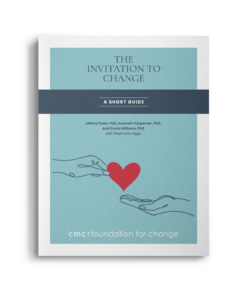Trainer
Jarell R.O. Myers, PhD is a clinical psychologist, licensed in both New York and Massachusetts, with training in cognitive-behavioral and dialectical behavioral approaches to treatment. He earned his doctorate in clinical psychology from Fairleigh Dickinson University and completed an APA-accredited internship at Mt. Sinai St. Luke’s Hospital on the child and adolescent track. In addition, Dr. Myers completed a two year postdoctoral fellowship in child and adolescent psychology at New York Presbyterian Hospital-Weill Cornell Medical Center in White Plains, New York where the focus was on treatment for anxiety. He used that experience at McLean Hospital in Cambridge, Massachusetts where he worked with children and adolescents diagnosed with Anxiety and Obsessive Compulsive Disorders in an intensive outpatient clinic. Dr. Myers has expertise in working with adolescents and young adults with comorbid anxiety and substance use disorders and adopts a harm reduction approach when appropriate.
Q&A
Get to know your trainer
There are few evidence-based treatment options for those with substance use disorders, and even less for their families. The Invitation to Change Approach is a method that I have seen be extremely beneficial for families because it provides concepts and skills to help a family convey important messages to their loved ones. Connection is key to countering substance use and mental health problems: we all need to feel known, accepted, and cared for. Families begin to understand the behaviors that drive their loved one’s substance use and then learn how to invite change through behavioral and communication strategies.
I am proud to be part of a mission that helps families know there is a way, a compassionate way, to reduce isolation, despair, and shame while increasing connection, acceptance, and willingness.
There is a profound shift that happens when parents begin to look at substance use from their loved one’s perspective, instead of their own or society’s. Parents feel compassion for their child in a new way and gain a deeper understanding of the reasons why their child continues to seek substances. It is an impactful “aha” moment that is central to the training.
Be patient with yourself.
Your self-care and self-awareness are both key in staying the course throughout the entire process of change. Change is hard and takes time! Remember your willingness and continue to practice, practice, practice – something ever so useful for your loved one.

